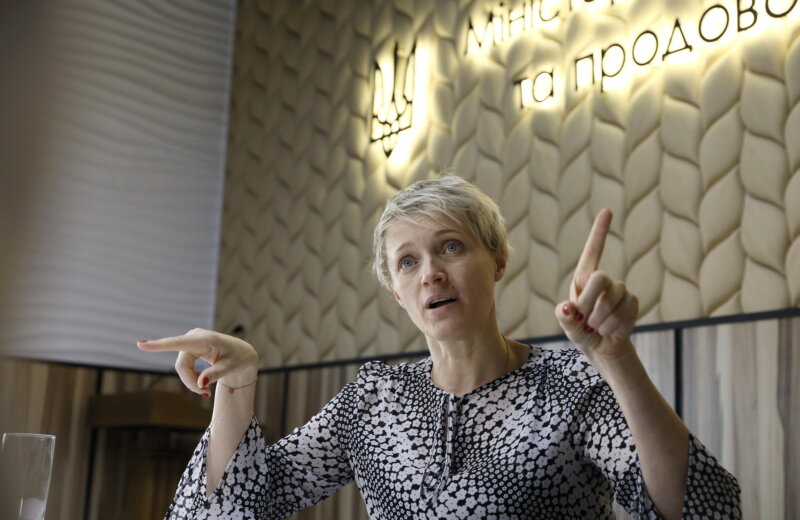Ukrainian President Volodymyr Zelensky and his Servant of the People party have promised to introduce an agricultural land sales market in Ukraine by 2020, after years of moratorium for selling agricultural land.
Now, when Zelensky holds the reins of the executive power, and the Servant of the People is gaining control in the Ukrainian parliament, the Verkhovna Rada, the introduction of the market rules for circulation of land could happen soon.
In an article on Liga.net platform, the outgoing minister of agricultural policy and food of Ukraine, Olga Trofimtseva, has outlined priorities to be considered in the future law on circulation of agricultural land. By passing this law the Verkhovna Rada will finally change the rules of the game on the agricultural land market.
Besides setting priorities, Trofimtseva believes that circulation of agricultural land shall proceed in a controlled and measured manner. The state shall support small and medium agricultural enterprises, and introduce certain limitations while relying on international experience.
Top seven tasks for land reform
The first priority, which Trofimtseva finds necessary, is to limit the right to sell and buy agricultural land to Ukrainian citizens. There shall also be limitations as to area of land owned (100-200 hectares) and the area of land leased (35 percent of the area in an administrative district, or territorial commune).
The second priority is to safeguard the agricultural land market from speculation and consequent overheating. This shall be achieved by introducing prohibitive duties (50 percent of real value) in case of reselling the land during the first three years of ownership.
Thirdly, the current users (landholders) shall be entitled to use their leased areas further on, in case the current owners will decide to sell the land. This can be achieved by a legislative provision guaranteeing the right of re-signing the lease agreements.
The fourth priority goes that for the first two years of the free market of the agricultural land, the price of land plots cannot fall below the estimated monetary value. The prices of the actual transactions shall also be officially registered so that the central bank of Ukraine can regulate the mortgage market.
Besides, the banks shall be entitled to acquire land plots in case of defaults on mortgage loans. This right of ownership, however, shall be limited to two years. Thus, the banks can become landowners of big scale, but they will not be able to hold to the land plots for long time.
Trofimtseva’s sixth priority goes that circulation of land shall be introduced at the moment when an agricultural season is ending. This would be the months of September or October. However, Trofimtseva warns that the changes cannot happen prior to expiration of the six months’ term after passing the law on agricultural lands.
This excludes September and October 2019 from possible starting dates of land market liberalization.
The final priority set by Trofimtseva is to introduce the mechanism when the state provides partial guarantees on loans for agricultural SMEs. This mechanism shall support agrarians’ access to financing.
Supporters and opponents
Introduction of free market of agricultural land is the cornerstone of the ongoing land reform process in Ukraine. The process has powerful supporters in Ukraine and abroad. So, Ukraine’s financial backers from the International Monetary Fund and the World Bank have supported the reform technically and financially.
Thus, on Aug. 28 the Ministry of Finance of Ukraine and the International Bank for Regional Development, member of the World Bank Group, have signed a $200 million agreement on accelerating private investments into Ukraine’s agriculture.
The $200 million program has ambitious goals of creating state agrarian register, inventorying land plots owned by the state, developing land management know how for local communes, and carrying out satellite mapping of Ukraine.
The program also envisages an information campaign for raising awareness of land owners and tenants as to protection of their rights, as well as developing instruments for private investments into Ukrainian agriculture.
After his recent visit to Ukraine World Bank President David Malpass wrote for Financial Times that “moratorium on agricultural land sales undermines the security of land tenure and limits the use of land as collateral to access credit.”
The opposition to the introduction of free circulation of agricultural land has traditionally come from the left-wing and populist parties, which are not present in the new convocation of the Verkhovna Rada.
Large agricultural holdings also show little interest in land reform, as their land banks might face danger as people decide to sell land to other owners. Trofimtseva’s third priority shall potentially ease these fears.



